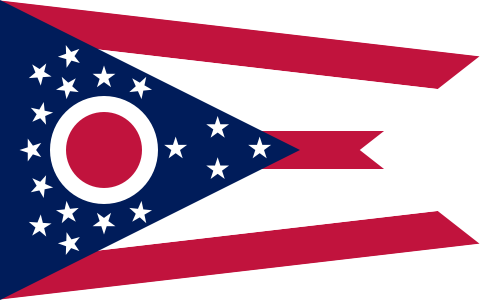U.S. District Court Judge Michael Watson issued an injunction on Aug. 31, 2024, against a provision of Ohio House Bill 1 (HB 1) that would have prohibited lawful permanent residents who are non-citizens from contributing to ballot measure campaigns.
Watson said that while Ohio has a compelling interest in preventing foreign influence over state political processes, restricting speech around ballot initiatives does not achieve that interest. He said, “Lawfully resident foreign nationals also generally enjoy First Amendment rights… [and] it also protects U.S. citizens’ right to hear those foreign nationals’ political speech.”
House Minority Leader Allison Russo (D-7) responded, “Ohio Republican’s supermajority is drunk on power and hell-bent on rigging the rules against citizen-led ballot initiatives, even if it means likely violating the First Amendment and trampling our most fundamental American freedom.”
Attorney General Dave Yost (R) said his office is reviewing the injunction. He stated, “We believe the court should have limited its remedy to the only constitutional problem it identified: restricting spending by legally present foreign nationals. We will seek clarification of the court’s order and are weighing further appeal.”
On June 2, Ohio Gov. Mike DeWine (R) signed HB1, making Ohio the ninth state to ban foreign contributions from certain individuals or entities. However, unlike the other eight states, Ohio included lawful permanent residents in this ban. In the Ohio State Legislature, Republicans voted for HB 1, and Democrats voted against the bill. HB 1, excluding the enjoined provision, took effect on September 1, 2024.
Regarding HB 1, several Ohio Republicans said Hansjörg Wyss, a citizen of Switzerland, is an example of a lawful permanent resident contributing to state ballot measure campaigns through an organization. Wyss is a legal permanent resident who lives in Wyoming. He has contributed to the Sixteen Thirty Fund, which donated $13.4 million to ballot measure campaigns in Ohio in 2023. The Sixteen Thirty Fund has also provided $6.67 million to Citizens Not Politicians, which is supporting this November’s Issue 1. Issue 1 would establish the Ohio Citizens Redistricting Commission (CRC), a 15-member non-politician commission responsible for adopting state legislative and congressional redistricting plans.
On June 27, 2024, five plaintiffs filed litigation against HB 1, which resulted in the injunction. Plaintiffs included OPAWL–Building AAPI Feminist Leadership, Northeast Ohio Coalition for the Homeless, Elisa Bredendiek, Peter Quilligan, and John Gerrath. The litigation said, “The definition of this key term [‘foreign nationals’] in HB 1 is so broad that it includes lawful permanent residents, threatening them with criminal prosecution and substantial fines for any amount of election-related spending—no matter how de minimus or indirect. In contrast, federal campaign finance law permits lawful permanent residents to contribute even to candidates.”
Americans for Public Trust and Honest Elections Project submitted an amicus brief supporting Ohio. The brief said, “Ohio has undeniably gone farther than any other individual State in pursuit of this goal. H.B. 1 applies to every type of noncitizen contributor (including lawful permanent residents) and to every type of Ohio election (including ballot issue elections). Other States that have regulated in this area have chosen either the former or the latter, but not both. But the fact that Ohio has legislated up to the limits of its authority does not mean that it has overstepped constitutional bounds.”
Ohio House Bill 1 was one of 37 bills enacted into law in 2024 that pertain to ballot measures as of Aug. 31. In November, voters in Utah will decide on a constitutional amendment that, among other changes, would prohibit foreign individuals, governments, and entities from supporting, opposing, or otherwise influencing ballot initiatives. The ballot measure does not define foreign individual, but rather states that the legislature “may provide, by statute, definitions, scope, and enforcement of the prohibition.”
Additional reading:


